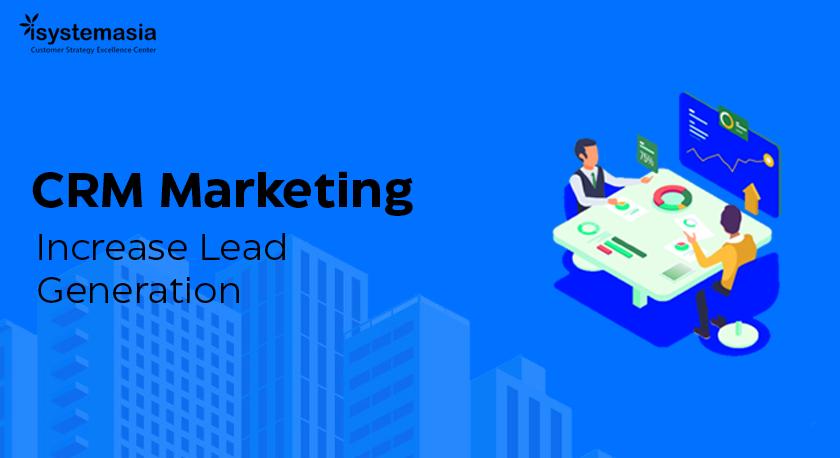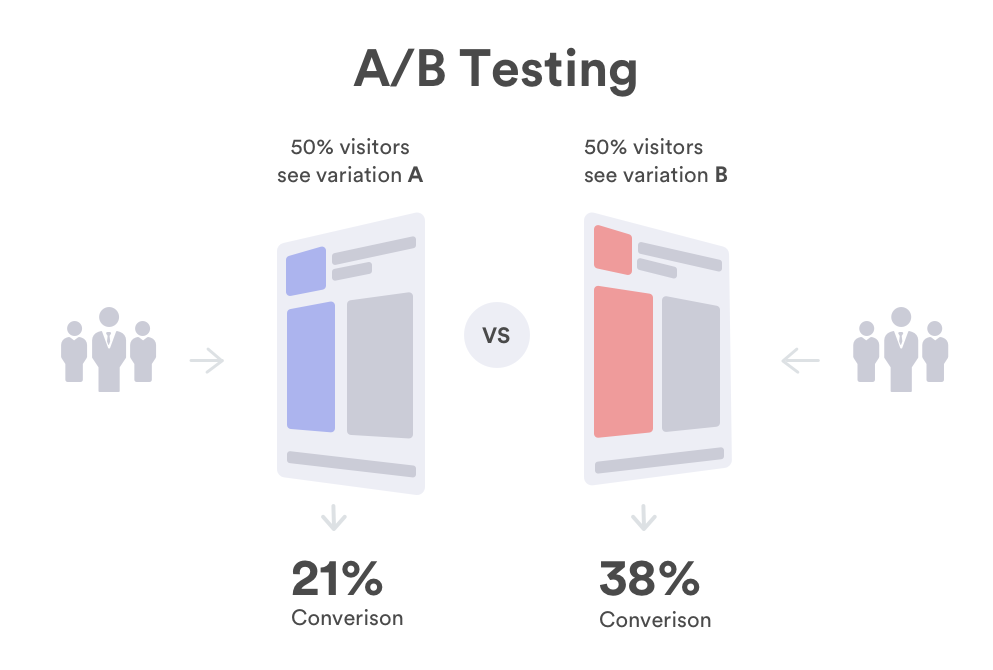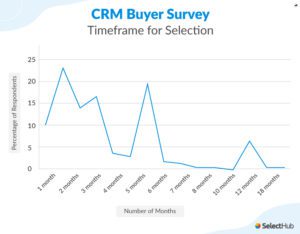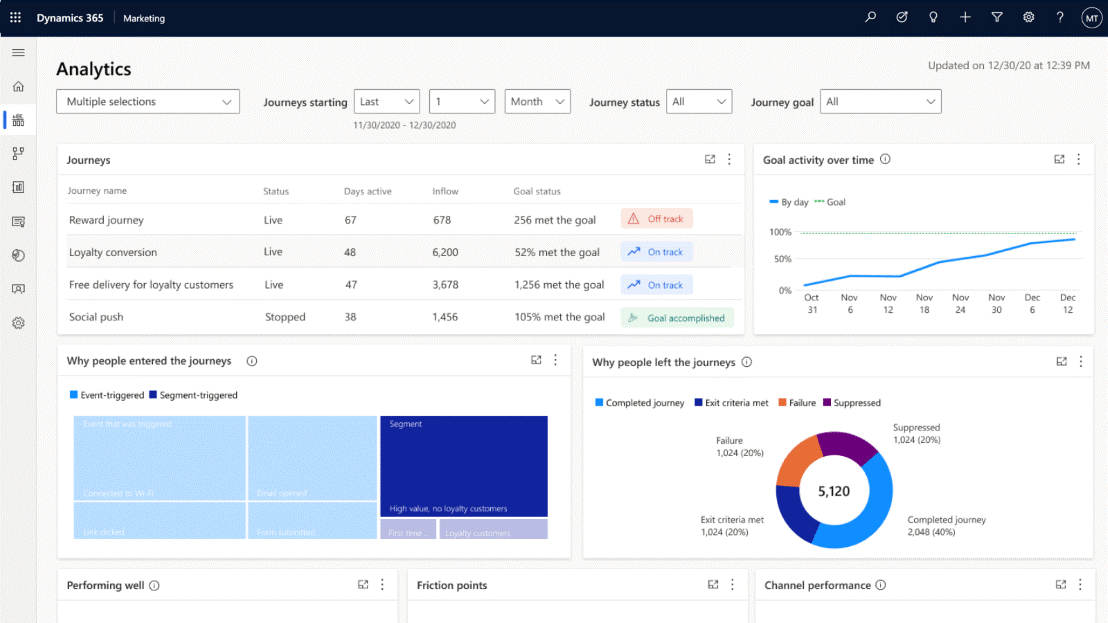Supercharge Your Events: A Comprehensive Guide to CRM-Powered Marketing Promotions
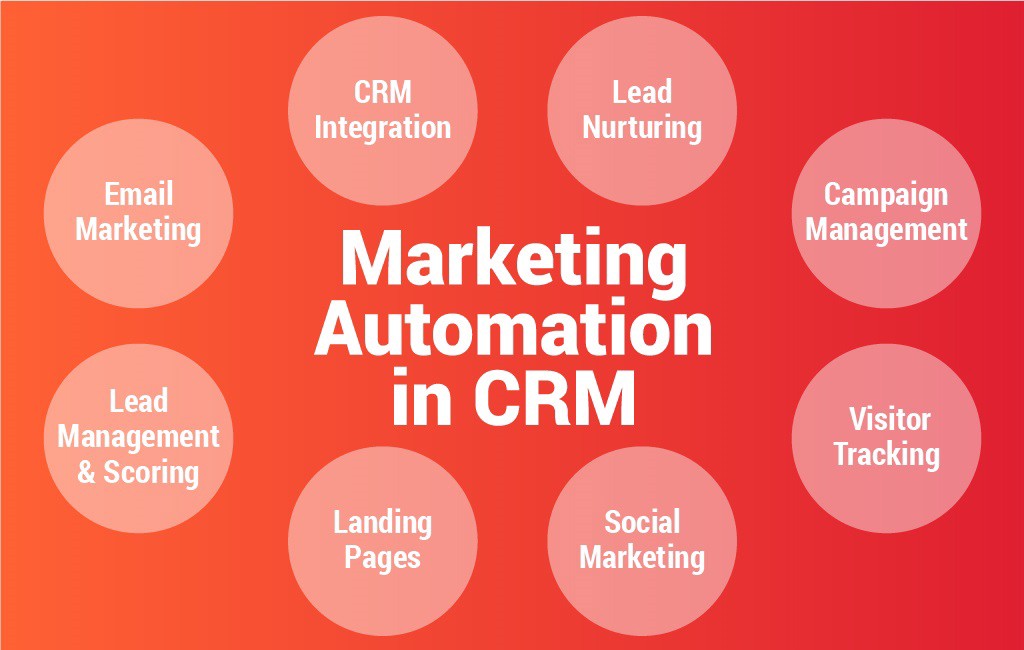
Supercharge Your Events: A Comprehensive Guide to CRM-Powered Marketing Promotions
In today’s fast-paced business environment, events are still a powerful tool for connecting with your audience, generating leads, and boosting brand awareness. However, simply hosting an event isn’t enough. To truly maximize your return on investment (ROI), you need a strategic approach that leverages the power of Customer Relationship Management (CRM) and targeted marketing promotions. This comprehensive guide will walk you through everything you need to know about CRM marketing event promotions, from planning and execution to analysis and optimization. Get ready to transform your events into lead-generating machines!
Why CRM is Crucial for Event Marketing
Before we dive into the specifics, let’s establish why CRM is so vital for event marketing. Traditional event marketing often relies on generic email blasts and mass advertising, which can be inefficient and ineffective. CRM, on the other hand, allows you to:
- Personalize Your Messaging: CRM provides a 360-degree view of your customers, allowing you to tailor your event invitations and follow-up communications to their specific interests and needs.
- Segment Your Audience: Group your contacts based on demographics, behavior, and engagement levels. This allows you to send highly relevant promotions to specific segments, increasing the likelihood of attendance and conversion.
- Track and Measure Results: CRM platforms offer robust analytics that track event registrations, attendance, and post-event engagement. This data provides valuable insights into what’s working and what’s not, enabling you to refine your strategy for future events.
- Automate Your Workflow: Automate repetitive tasks like sending invitations, reminders, and follow-up emails, freeing up your team to focus on more strategic initiatives.
- Improve Lead Nurturing: Integrate event data with your lead nurturing campaigns to guide prospects through the sales funnel and convert them into customers.
Planning Your CRM-Powered Event Promotions
Successful event promotions start with meticulous planning. Here’s a step-by-step guide to help you create a winning strategy:
1. Define Your Event Goals and Objectives
What do you want to achieve with your event? Are you aiming to generate leads, build brand awareness, launch a new product, or strengthen customer relationships? Clearly defined goals will guide your entire promotion strategy. Be specific and measurable. For example, instead of “increase brand awareness,” aim for “increase website traffic by 20% within one month of the event.”
2. Identify Your Target Audience
Who are you trying to reach? Create detailed buyer personas to understand their needs, interests, and pain points. This will inform your event content, promotional messaging, and targeting strategies. Consider factors like:
- Demographics: Age, location, industry, job title, etc.
- Psychographics: Interests, values, lifestyle, etc.
- Behavior: Online activity, purchase history, event attendance, etc.
3. Choose the Right Event Format
The event format should align with your goals and target audience. Consider these options:
- Webinars: Cost-effective for reaching a large audience and sharing valuable content.
- Virtual Conferences: Offer a more immersive experience with multiple sessions and networking opportunities.
- In-Person Events: Provide a more personal touch and foster stronger connections. Consider workshops, seminars, or networking mixers.
- Hybrid Events: Combine the benefits of both virtual and in-person events, offering flexibility and wider reach.
4. Select a CRM Platform that Fits Your Needs
Choose a CRM platform that offers robust event marketing features, such as:
- Contact Management: Organize and segment your contacts based on various criteria.
- Email Marketing: Create and send targeted email campaigns.
- Event Registration: Manage event registrations and track attendance.
- Automation: Automate event-related workflows, such as sending invitations and reminders.
- Analytics: Track key metrics and measure the success of your event promotions.
- Integration: Integrate with other marketing tools, such as email marketing platforms and social media channels.
Popular CRM platforms that offer event marketing capabilities include Salesforce, HubSpot, Zoho CRM, and Pipedrive. Research and compare platforms to find the best fit for your business.
5. Develop a Detailed Event Promotion Timeline
Create a timeline that outlines key milestones and deadlines for your event promotion activities. This will help you stay organized and ensure that you’re on track to achieve your goals. The timeline should include tasks such as:
- Event Announcement: Start promoting the event well in advance, typically several weeks or months before the event date.
- Early Bird Registration: Offer incentives for early registration to encourage sign-ups.
- Content Creation: Develop compelling event content, such as blog posts, videos, and social media updates.
- Email Marketing Campaigns: Schedule and send targeted email campaigns to promote the event.
- Social Media Promotion: Promote the event on social media channels, using relevant hashtags and engaging visuals.
- Reminder Emails: Send reminder emails to registered attendees a few days before the event.
Executing Your CRM-Powered Event Promotions
With a solid plan in place, it’s time to put your CRM-powered event promotion strategy into action. Here’s how to execute your plan effectively:
1. Segment Your Audience in Your CRM
Leverage the data in your CRM to segment your audience based on relevant criteria, such as industry, job title, past event attendance, and engagement level. This segmentation allows you to personalize your messaging and target specific groups with relevant promotions.
2. Craft Compelling Email Campaigns
Email marketing is a cornerstone of event promotion. Create engaging email campaigns that capture your audience’s attention and encourage them to register. Here are some best practices:
- Personalize Your Emails: Use the recipient’s name and other personal information to make your emails feel more relevant.
- Write Compelling Subject Lines: Your subject line is the first thing recipients see, so make it attention-grabbing and intriguing.
- Highlight the Benefits: Clearly communicate the value proposition of attending your event. What will attendees gain from participating?
- Use Strong Calls to Action: Include clear and concise calls to action, such as “Register Now” or “Learn More.”
- Optimize for Mobile: Ensure your emails are mobile-responsive, as many people will be viewing them on their smartphones.
- A/B Test Your Emails: Test different subject lines, email content, and calls to action to see what performs best.
3. Utilize Social Media for Promotion
Social media is a powerful tool for event promotion. Create engaging content and share it across your social media channels. Consider these tactics:
- Create a Dedicated Event Page: Create a dedicated event page on your website or a landing page.
- Use Relevant Hashtags: Use relevant hashtags to increase the visibility of your posts.
- Share Engaging Content: Share behind-the-scenes content, speaker spotlights, and event previews.
- Run Targeted Ads: Run targeted ads on social media to reach a wider audience.
- Engage with Your Audience: Respond to comments and questions promptly.
4. Leverage Landing Pages for Registration
Create dedicated landing pages for your event registration. These pages should be designed to convert visitors into registrants. Include:
- A Clear Headline: Clearly state the event name and date.
- A Concise Description: Provide a brief overview of the event and its benefits.
- Speaker Information: Highlight key speakers and their expertise.
- A Strong Call to Action: Make it easy for visitors to register.
- Social Proof: Include testimonials from past attendees or logos of sponsors.
5. Implement Automation Workflows
Automate repetitive tasks to save time and improve efficiency. Set up automated workflows in your CRM to:
- Send Automated Invitations: Automatically send invitations to segmented lists.
- Send Reminder Emails: Send reminder emails to registered attendees before the event.
- Send Follow-Up Emails: Send follow-up emails after the event to thank attendees and share valuable resources.
Measuring and Analyzing Your Event Promotion Results
To optimize your event promotion strategy, you need to track and analyze your results. Your CRM should provide the data and analytics you need to assess your performance. Here’s what to measure:
1. Track Key Metrics
Monitor key metrics to gauge the success of your event promotions. These metrics include:
- Registration Rate: The percentage of people who register for your event.
- Attendance Rate: The percentage of registered attendees who actually attend the event.
- Website Traffic: The number of visitors to your event landing page.
- Email Open Rate: The percentage of recipients who open your emails.
- Click-Through Rate (CTR): The percentage of recipients who click on links in your emails.
- Conversion Rate: The percentage of visitors who convert into leads or customers.
- Social Media Engagement: Likes, shares, comments, and other interactions on social media.
- Lead Generation: The number of new leads generated from your event.
- Customer Acquisition Cost (CAC): The cost of acquiring a new customer through your event.
- Return on Investment (ROI): The overall return on your event marketing investment.
2. Analyze Your Data
Analyze the data you collect to identify trends and insights. Look for patterns in your registration and attendance rates. Determine which email campaigns and social media posts performed best. Understand which segments responded most favorably to your promotions.
3. Generate Reports
Generate reports to summarize your event promotion results. Share these reports with your team and stakeholders to provide a clear overview of your performance. Use these reports to identify areas for improvement and to inform your future event marketing strategies.
4. Optimize Your Strategy
Based on your analysis, make adjustments to your event promotion strategy. Refine your messaging, targeting, and promotional channels. Experiment with different approaches to see what yields the best results. Continuously optimize your strategy to improve your ROI and achieve your event goals.
Post-Event Activities: Maximizing Value
The work doesn’t stop after the event ends. Post-event activities are crucial for maximizing the value of your event and nurturing leads. Here’s what to do:
1. Send Thank-You Emails
Send a personalized thank-you email to all attendees and those who registered but couldn’t make it. This shows your appreciation for their time and builds goodwill. Include:
- A Thank You Message: Express your gratitude for their participation.
- Event Highlights: Recap key takeaways and memorable moments from the event.
- Resources: Provide access to presentations, recordings, and other valuable resources.
- Call to Action: Encourage attendees to take the next step, such as visiting your website, scheduling a demo, or contacting your sales team.
2. Nurture Leads
Use your CRM to nurture leads generated from the event. Segment your leads based on their level of engagement and tailor your follow-up communications accordingly. This could involve:
- Sending Personalized Email Sequences: Guide leads through the sales funnel with relevant content.
- Offering Exclusive Content: Provide access to premium content, such as white papers or case studies.
- Inviting Leads to Webinars or Demos: Encourage leads to learn more about your products or services.
- Following Up with Sales Calls: Connect leads with your sales team for personalized consultations.
3. Gather Feedback
Collect feedback from attendees to improve your future events. Send a post-event survey to gather insights on:
- Event Content: What did they like and dislike about the content?
- Speakers: How did they rate the speakers?
- Logistics: Were the venue, registration process, and other logistical aspects satisfactory?
- Overall Experience: What was their overall experience?
Use this feedback to make improvements for future events.
4. Analyze and Report on Post-Event Results
Analyze the results of your post-event activities, such as lead nurturing and sales conversions. Track the ROI of your event and report on your findings. This information will help you refine your event marketing strategy for future events.
Best Practices for CRM Marketing Event Promotions
To maximize the effectiveness of your CRM-powered event promotions, keep these best practices in mind:
- Prioritize Data Quality: Ensure that your CRM data is accurate, complete, and up-to-date. This will improve the effectiveness of your segmentation and personalization efforts.
- Personalize Everything: Tailor your messaging, content, and offers to each individual’s needs and interests.
- Automate Whenever Possible: Automate repetitive tasks to save time and improve efficiency.
- Integrate Your Systems: Integrate your CRM with other marketing tools, such as email marketing platforms and social media channels.
- Test and Optimize Continuously: Test different approaches and analyze your results to identify what works best. Continuously optimize your strategy to improve your ROI.
- Stay Organized: Use a project management tool to track your event promotion activities and ensure that you’re meeting deadlines.
- Collaborate with Your Team: Involve your sales, marketing, and event teams in the planning and execution of your event promotion strategy.
- Be Consistent: Maintain a consistent brand voice and messaging across all your event promotion channels.
- Provide Value: Offer valuable content and experiences that will attract and engage your target audience.
- Follow Up Promptly: Follow up with leads and attendees promptly after the event.
Case Studies: Real-World Examples
Let’s look at a few case studies to illustrate how businesses have successfully used CRM to power their event promotions:
Case Study 1: Tech Startup Boosts Webinar Attendance
A tech startup used their CRM to promote a series of webinars on their new software. They segmented their audience based on industry and job title. They then created targeted email campaigns with personalized invitations and reminders. They tracked registrations, attendance, and engagement levels using their CRM analytics. As a result, they saw a 30% increase in webinar attendance and a 20% increase in qualified leads.
Case Study 2: B2B Company Generates Leads at a Trade Show
A B2B company used their CRM to manage their presence at a major industry trade show. They created a dedicated landing page with a registration form for a free consultation. They used their CRM to track leads generated at the event and to follow up with them after the show. They segmented their leads based on their interactions at the event and created personalized email sequences to nurture them. The result was a 15% increase in sales qualified leads and a 10% increase in revenue.
Case Study 3: E-commerce Business Drives Sales with a Virtual Conference
An e-commerce business hosted a virtual conference to promote their new product line. They used their CRM to manage registrations, send reminders, and deliver post-event content. They segmented their audience based on their purchase history and interests. They then created targeted email campaigns with exclusive offers and discounts. The virtual conference generated a significant increase in website traffic, sales, and customer engagement.
Conclusion: Unleashing the Power of CRM for Event Success
CRM is an indispensable tool for event marketers. By leveraging the power of CRM, you can personalize your messaging, segment your audience, automate your workflows, and track your results. This comprehensive guide has provided you with the knowledge and strategies you need to create successful event promotions that generate leads, build brand awareness, and drive revenue. Embrace the power of CRM and transform your events into lead-generating machines. Start planning your next event today and watch your success soar!

